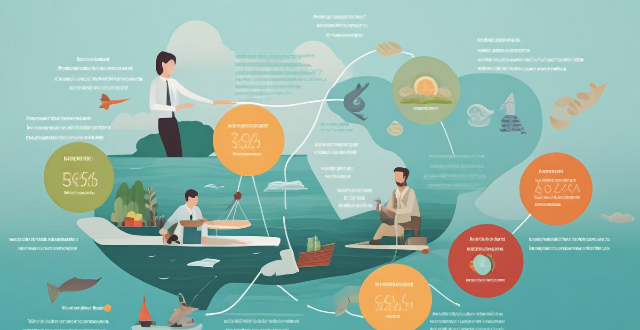The article discusses the implications of not meeting climate targets, including rising sea levels leading to coastal erosion and loss of habitat; extreme weather events causing heatwaves and storms; biodiversity loss resulting in species extinction; economic disruption due to disaster recovery costs and loss of productivity; health impacts such as heat-related illnesses and air quality issues; food security concerns from reduced crop yields and water scarcity; and displacement and migration caused by climate change. It emphasizes the importance of meeting climate targets to mitigate these adverse effects on the environment, economy, and society.

Implications of Not Meeting Climate Targets
Introduction
Climate targets are crucial for mitigating the adverse effects of climate change. However, if these targets are not met, there will be significant implications for the environment, economy, and society. In this article, we will discuss the implications of not meeting climate targets in detail.
Environmental Implications
Rising Sea Levels
- Coastal Erosion: As sea levels rise, coastal areas will experience increased erosion, leading to the loss of beaches and damage to infrastructure.
- Loss of Habitat: Rising sea levels will also result in the loss of habitat for marine and coastal species, disrupting ecosystems and biodiversity.
Extreme Weather Events
- Heatwaves: More frequent and intense heatwaves can lead to heat-related illnesses and deaths, as well as increased demand for air conditioning, which puts additional strain on energy systems.
- Storms and Floods: Increased frequency and intensity of storms and floods can cause extensive damage to buildings, infrastructure, and crops, leading to economic losses and displacement of people.
Biodiversity Loss
- Species Extinction: Climate change can cause the extinction of species that are unable to adapt to changing conditions, leading to a loss of biodiversity.
- Ecosystem Disruption: Changes in temperature and precipitation patterns can disrupt ecosystems, affecting the distribution and abundance of species.
Economic Implications
Cost of Adaptation
- Infrastructure Investment: To adapt to the impacts of climate change, significant investments will be required in infrastructure such as sea walls, drainage systems, and cooling technologies.
- Agricultural Adaptation: Changes in temperature and precipitation patterns can affect crop yields and livestock productivity, requiring farmers to invest in new technologies and practices to adapt.
Economic Disruption
- Disaster Recovery Costs: The cost of recovering from extreme weather events can be significant, diverting resources away from other sectors such as education and healthcare.
- Loss of Productivity: Heatwaves and other climate-related factors can reduce worker productivity, leading to economic losses.
Social Implications
Health Impacts
- Heat-Related Illnesses: As temperatures rise, there will be an increase in heat-related illnesses such as heat stroke and dehydration.
- Air Quality: Climate change can exacerbate air pollution, leading to respiratory problems and other health issues.
Food Security
- Reduced Crop Yields: Changes in temperature and precipitation patterns can reduce crop yields, leading to food shortages and increased prices.
- Water Scarcity: Droughts caused by climate change can lead to water scarcity, affecting irrigation and drinking water supplies.
Displacement and Migration
- Climate Refugees: As sea levels rise and extreme weather events become more frequent, people may be forced to leave their homes and communities, leading to displacement and migration.
- Conflict Over Resources: Competition for resources such as water and arable land may increase, leading to conflict between communities and nations.
Conclusion
Meeting climate targets is essential for mitigating the adverse effects of climate change on the environment, economy, and society. Failing to meet these targets will have significant implications, including rising sea levels, extreme weather events, biodiversity loss, economic disruption, health impacts, food security issues, and displacement and migration. It is crucial that global efforts are made to reduce greenhouse gas emissions and adapt to the impacts of climate change to minimize these implications.